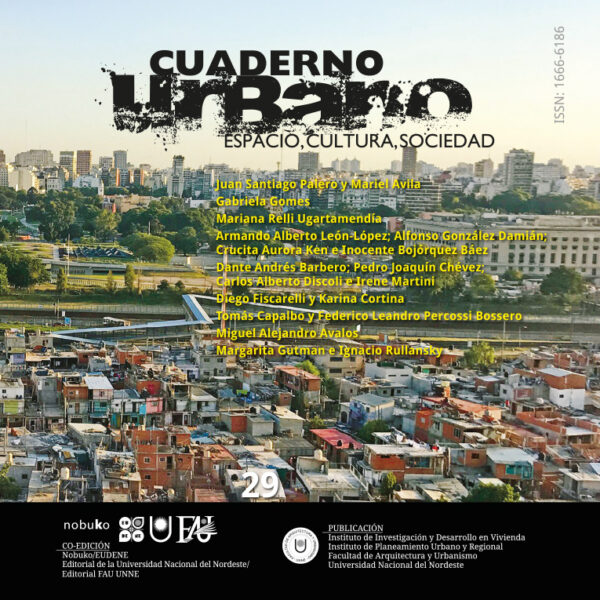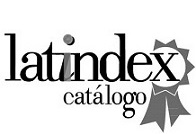Neoliberal governmentality and sustainability in urban planning: an analysis of the rationalities of the Territorial Model 2010-2060 for the city of Buenos Aires
DOI:
https://doi.org/10.30972/crn.29294628Keywords:
Governmentality, urban planning, sustainability, Buenos AiresAbstract
In this article we analyze the articulation of the discourse of sustainability and neoliberal political rationality in the field of urban planning. Our research focuses on the rationalities of the authorities of the government of the Autonomous City of Buenos Aires from 2007 to 2015. Precisely, the Undersecretary of Planning, of the Ministry of Urban Development, published in 2009 a document that outlined the principles for the design of public policies: the Buenos Aires Territorial Model 2010-2060. In this document, a prospective vision for the city was embodied, presenting the sustainability discourse as a transformative logic, since it would allow the authorities to understand the dynamic trends of the population, enabling the production of technologies to conduct such practices. Using the content analysis technique, we study how the highest government authorities established in this document, a vocation to effectively govern the relationship between society, economy and environment.Downloads
References
(1) Arendt, H. (2014 [1958]). La condición humana. Buenos Aires: Paidós.
(2) Babb, S. (2005). The Social Consequences of Structural Adjustment: Recent Evidence and Current Debates. Annual Review of Sociology. Vol. 31, pp. 199-222.
(3) Bettencourt, L. M. A. & Kaur, J. (2011). The evolution and structure of sustainability science. Proceedings of the National Academy of Sciences, United States. Vol. 108, pp. 19540–19545.
(4) Brockling, U. (2011). Human Economy, Human Capital: A Critique of Biopolitical Economy en Bröckling, U., Krasmann, S. & Lemke, T. eds., Governmentality Current Issues and Future Challenges, pp. 247-269. NYC: Routledge.
(5) Brown, W. (2015). Undoing the demos: neoliberalism`s stealth revolution. NYC: Zone Books.
(6) Centner, R. (2009). Conflictive sustainability landscapes: the neoliberal quagmire of urban environmental planning in Buenos Aires. Local Environment, Vol. 14, No. 2, pp. 173–192.
(7) Espina, H. A.; Foray, F.; Lerena Rongvaux, N. & Moroni, M. M. (2013) Planeamiento Estratégico en la Ciudad de Buenos Aires: ¿qué ciudad desea el Modelo Territorial? Ponencia presentada en EJE d) Geografía Urbana XIV EGAL, Lima, Perú. Recuperado de: http://www.observatoriogeograficoamericalatina.org.mx/egal14/Geografiasocioeconomica/Ordenamientoterritorial/31.pdf
(8) Dilts, A. (2011). From ‘Entrepreneur of the Self’ to ‘Care of the Self’: Neo-liberal Governmentality and Foucault’s Ethics. Foucault Studies, 12, 130-146.
(9) Foucault, M. (1991). Governmentality. En Burchell, Graham, Colin Gordon and Peter Miller, The Foucault Effect: Studies in Governmentality. Chicago: University of Chicago Press, pp. 87-104.
(10) Foucault, M. (2012). Nacimiento de la biopolítica. Bs. As.: FCE. Trad.: Horacio Pons.
(11) Gibson, R. B. (2006). Sustainability assessment: basic components of a practical approach. Impact Assessment and Project Appraisal, 24: 3, pp. 170-182.
(12) Gordon, C. (1991). Governmental Rationality: An Introduction. En The Foucault Effect: Studies in Governmentality. Editado por Burchell, Graham, Colin Gordon and Peter Miller, 1-51. Chicago: University of Chicago Press.
(13) Hsieh, H-F. & Shannon, S. E. (2005). Three Approaches to Qualitative Content Analy-sis. Qualitative Health Research, Vol. 15, No. 9, November 2005: 1277-1288.
(14) Jajamovich, G. (2012). Apuntes para una crítica al Modelo Territorial de Buenos Aires: Lo que plantea y lo que excluye. Café de las Ciudades, 11, 118. Recuperado de: https://cafedelasciudades.com.ar/planes_118.htm
(15) Leach, Melissa; Scoones, Ian & Stirling, Andy (2010). Dynamic Sustainabilities: Technology, Environment, Social Justice. Earthscan, UK.
(16) Lemke, Thomas (2001). The Birth of Bio-Politics – Michel Foucault’s Lecture at the Collège de France on Neo-Liberal Governmentality. Economy & Society, Vol. 30. No. 2, 190-207.
(17) Lemke, T. (2002). Foucault, Governmentality, and Critique. Rethinking Marxism, 14 (3), 49-64.
(18) Lemke, T. (2007). An Indigestible Meal?: Foucault, Governmentality and State Theory, Distinktion: Scandinavian Journal of Social Theory 8.2 (2007), pp. 43–64.
(19) Macri, Mauricio; Chain, Daniel; Lostri, Héctor (2009). Modelo Territorial Buenos Aires 2010-2060 / edición literaria a cargo de Mauricio Macri; Daniel Chain; Héctor Lostri. Primera ed. Buenos Aires: Ministerio de Desarrollo Urbano del Gobierno de la Ciudad Autónoma de Buenos Aires. Recuperado de https://www.mininterior.gov.ar/planificacion/pdf/planes-loc/CABA/Modelo-territorial-2010-2060.pdf
(20) Neuendorf, K. A. (2002). The content analysis guidebook. London: Sage Publications.
(21) Mohan, Giles; Brown, Ed; Milward, Bob & Zack-Williams, Alfred B. (2000). Structural adjustment: theory, practice, and impacts. London, primera edición.
(22) Rose, N. & Miller, P. (1992). “Political Power beyond the State: Problematics of Government” en The British Journal of Sociology, Vol. 43, No. 2, pp. 173-205.
(23) Porter, M. (1990). The Competitive Advantages of Nations. NY: Free Press.
(24) Redman, C. L. (2014). Should sustainability and resilience be combined or remain distinct pursuits? Ecology and Society, Vol. 19, pp. 2-37.
(25) Riechmann, J. (1995). Desarrollo sostenible: la lucha por la interpretación. En Jorge Riechmann y otros (compiladores), De la economía a la ecología. Madrid: Trotta.
(26) Riechmann, J. (2003). Tres principios básicos de justicia ambiental. RIFP/21 (2003), pp. 103-120.
(27) Riechmann, J. (2005). ¿Cómo cambiar hacia sociedades sostenibles? Isegoría, No. 32 (2005), pp. 96-117.
(28) Smith, A. & Stirling, A. (2010). The politics of social-ecological resilience and sustainable socio-technical transitions. Ecology and Society, Vol. 15(1): 11.
(29) Theodore, N., Peck, J. & Brenner, N. (2009). Urbanismo neoliberal: la ciudad y el imperio de los mercados. Temas Sociales, 66, 1-11.
(30) Veltmeyer, Henry; Petras, James & Vieux, Steve (1997). Capítulos I, II y III. En Neoliberalism and class conflict in Latin America: a comparative perspective on the political economy of structural adjustment. New York, NY: Palgrave Macmillan, pp. 1-92.
Downloads
Published
Issue
Section
License
CUADERNO URBANO sustains its commitment to the Open Access policies for scientific information, on account of the fact that both scientific publications and public funded research must circulate freely on the Internet and without restrictions.
CUADERNO URBANO ratifies the Open Access model in which the contents of scientific publications are available in full text free of charge on the Internet, without temporary embargoes, and whose editorial production costs are not transferred to the authors. This policy proposes breaking down the economic barriers that generate inequities both in access to information and in the publication of research results.





.jpg)








